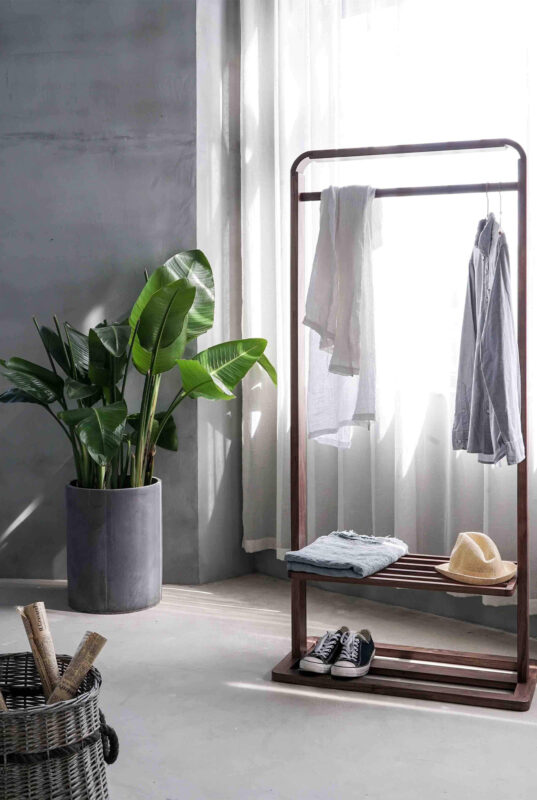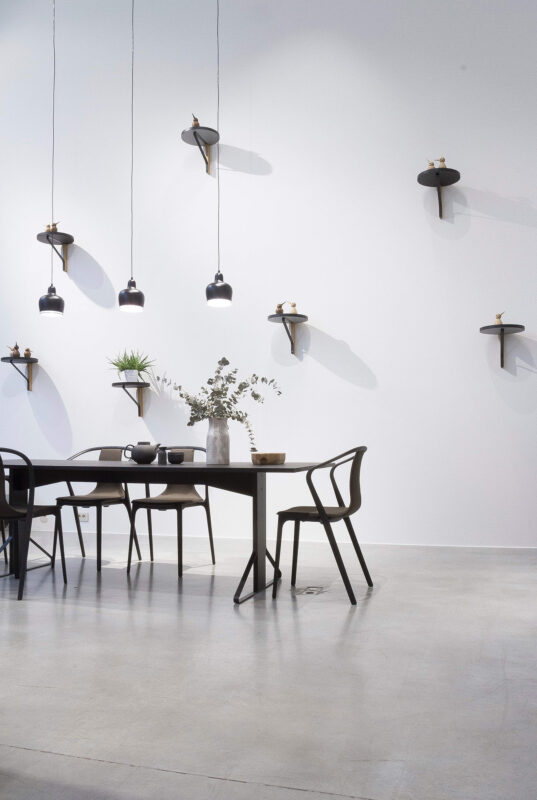Blog
Go Green: Sustainable Concepts & Outdoor Living Tips

The quest to lead a more environmentally conscious lifestyle has spurred a significant shift toward sustainable outdoor living. As society grows increasingly aware of its environmental impact, there’s a rising demand for eco-friendly solutions across all aspects of life, especially in outdoor living spaces.
These green alternatives address the pressing need to reduce the ecological footprint while also providing an opportunity to create serene, sustainable havens right in people’s backyards. Among the various options available, recycled plastic outdoor furniture shines brightly. It’s a decision that marries durability with a minimal environmental footprint, offering a chic and functional addition to any outdoor setting.
Read on to discover how to transform your outdoor living space into a showcase of sustainability and style.
Choosing Sustainable Materials
Creating a sustainable outdoor space starts with the materials you choose. Making these decisions helps reduce your environmental footprint while keeping your garden or patio stylish and comfortable, embodying sustainable style.
Here are the materials to consider for a green makeover:
- Furniture: Look for options made from materials like bamboo, which proliferates and doesn’t require replanting, or FSC-certified wood harvested from responsibly managed forests. Recycled plastic furniture also offers a durable, weather-resistant choice that keeps waste out of landfills.
- Outdoor rugs: Natural fibers such as jute are biodegradable and sustainable, making them excellent choices for eco-friendly outdoor rugs. Rugs made from recycled plastics transform waste into vibrant, durable area rugs that withstand the elements.
- Decking and fencing: Composite materials, blending recycled plastic with wood fibers, offer a sustainable alternative to traditional wood. These composites resist rot and insects, require less maintenance, and provide a long-lasting solution that reduces the need for new resources.
Choosing suitable materials can dramatically reduce the environmental impact of your outdoor living space. Incorporating durable hardscape elements, such as retaining walls Salt Lake City offers, can prevent soil erosion and enhance sustainability while adding structure to your yard. By selecting sustainable furniture, rugs, and construction materials, you contribute to a healthier planet and enjoy a beautiful, eco-friendly space.
Incorporating Renewable Energy
Transitioning to renewable energy sources is pivotal in cultivating a sustainable outdoor environment. This approach lessens the environmental impact and offers a cost-effective alternative, with solar panel installation near me emerging as a practical and efficient solution.
Below are detailed ways to incorporate renewable energy:
- Solar-powered lighting: Solar lights are a fantastic option for illuminating pathways, garden features, and security areas. They charge during the day using sunlight and automatically light up at dusk, providing a zero-cost lighting solution after the initial investment.
- Solar panels: Installing solar panels can significantly reduce your dependence on the grid for powering outdoor kitchens, entertainment systems, or pool heating. Solar energy is clean and abundant and can lead to substantial savings on utility bills.
- Wind-powered features: Small wind turbines, often in the form of decorative wind chimes or sculptures, can generate electricity to power outdoor lighting or small appliances. These features add a unique aesthetic to your garden while harnessing the power of the wind.
Embracing renewable energy for your outdoor space cuts your carbon footprint, saves money in the long run, and enhances self-reliance. Investing in smart home tech can be a pricey investment, but the goal with these devices — whether replacing an appliance or adding rooftop residential solar panels — should be an investment that’s going to offer long-term value.

Photo from Adobe
Water Conservation Practices
Efficient water management is a cornerstone of sustainable outdoor living. Through mindful practices, you can significantly reduce water consumption in your garden or patio, contributing to a more sustainable and environmentally friendly outdoor space.
Here are the strategies to optimize water use:
- Rainwater harvesting systems: Installing these systems allows you to collect rainwater for various outdoor uses, such as watering plants or cleaning. It’s a straightforward way to reduce your dependence on municipal water and make the most of natural precipitation.
- Drought-resistant plants: Opting for plants that thrive with minimal water is smart and reduces the need for frequent watering. Native plants offer notable advantages due to their adaptation to local climate and soil conditions, demanding less water and maintenance than non-native varieties.
- Efficient irrigation: Drip irrigation systems target the root zone of plants, where water is most needed, reducing waste through evaporation or runoff. This method ensures that water goes directly to where it’s needed most, making it a highly efficient way to maintain your garden.
Implementing water-saving practices helps you maintain a lush outdoor space with less environmental impact. This reduces dependency on municipal supplies and supports a healthier planet, ensuring a vibrant outdoor area for future generations.
Embracing Zero-Waste Living
Adopting a zero-waste lifestyle in your outdoor living space is an impactful way to reduce your environmental footprint and promote sustainability. This approach revolves around minimizing waste wherever possible, reusing materials, and choosing products with little to no negative environmental impact.
Here are focused strategies to achieve a zero-waste, sustainable outdoor living area:
- Composting systems: You can transform leftovers and yard debris into nutrient-rich compost by setting up a compost bin for organic waste from your kitchen and garden. This reduces the waste sent to landfills and provides an excellent fertilizer for your plants.
- Reusable outdoor dinnerware: Opt for durable, eco-friendly options like bamboo, stainless steel, or glass for outdoor dining. These materials offer an aesthetic appeal without the waste of single-use plastics, making your gatherings more sustainable.
- Furniture and decor repurposing: Instead of discarding old furniture and decorations, get creative by refurbishing them for outdoor use. This can involve painting, repairing, or even repurposing items in new and innovative ways, adding a unique charm to your space while minimizing waste.
Zero-waste practices create an eco-friendly outdoor space, reducing landfill waste and supporting sustainability. Every effort to minimize waste counts towards a greener lifestyle. So, embrace the ‘reuse, reduce, and recycle’ philosophy and enjoy your outdoor space with a clear conscience, knowing you’re doing your part for a greener future.
Beekeeping for Sustainability
Incorporating beekeeping into your sustainable outdoor living space is a great way to support local ecosystems and boost biodiversity. Bees are essential for pollination, helping plants thrive and produce food.
Here’s how to get started:
- Plant Bee-Friendly Flowers: Choose plants like lavender, sunflowers, and clover to attract bees, providing them with nectar and pollen.
- Install a Beehive or Beehouse: Set up a beehive for honeybees or a beehouse for solitary bees to support pollinator populations. You can even find honey bees for sale to start your colony.
- Natural Pest Control: Bees attract beneficial insects that help control garden pests, reducing the need for chemicals—a smart approach also recommended by any reputable Gainesville pest control company.
- Educational Value: Beekeeping offers a chance to teach others about the importance of bees and sustainability.
Final Thoughts
Converting your garage into a livable space is a smart idea for many reasons. You’ll gain extra room that can be used as an office, playroom, guest suite, or for any other purpose you may need. Although the process may seem complicated, following the steps and tips we’ve outlined will help you transform your garage into a functional space in no time. Before you know it, you’ll be enjoying your new living area. With some vision and hard work, your garage has the potential to become one of the most useful areas of your home. So, make it happen, and you’ll be glad you did.
And if the task seems daunting, remember there are professionals hiring for garage cleanouts who can help you get started!

















